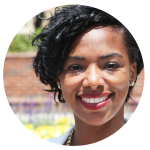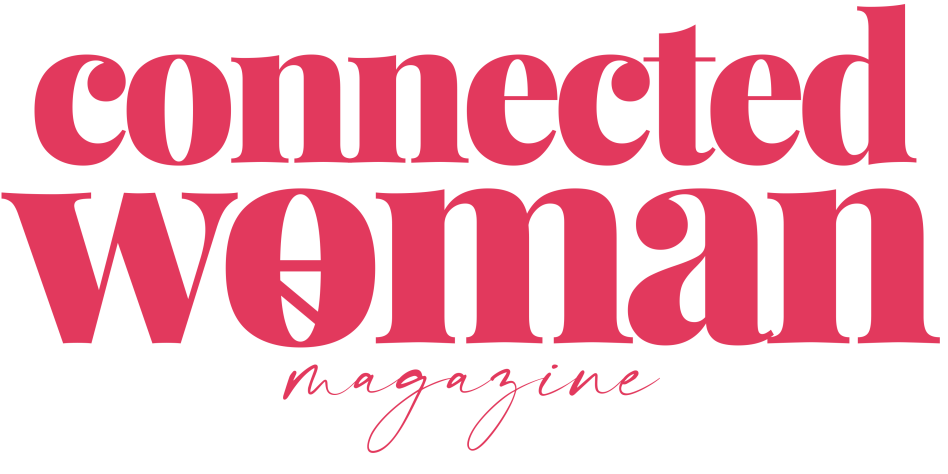Tashawna Chisholm is the CEO of Be Financial, a Financial Services Marketing company and a Senior Financial Strategist & Mortgage Advisor based in North Atlanta GA. While focusing on becoming a trusted financial source to individuals, businesses and families, her goal is to find the right solutions for her clients to not only build but maintain wealth and pass that knowledge to many generations after. CWM recently spoke with Tashawna about everything from home ownership to debt management.

Income Protection
What is the biggest mistake most people make when it comes to protecting their income and preparing the family they may leave behind the ability to survive without their income after their death?The biggest mistake often made when purchasing life insurance is the misconception of how much it cost. When you are only factoring in cost, you are shortchanging your family in the end. Life insurance is an investment. It provides protection for your family and another income source. On the other hand, maybe you are using cost to determine the total amount you need. When you say, “I only want $60 worth of coverage”, you can still end up with not enough coverage. Insurance companies weigh risk (health, illnesses, age, etc.)

Senior Financial Strategist of Be Financial & GA Mortgage Advisor of Finance of America
differently. For $60 you can end up with anywhere from $150,000 to $1,000,000 depending on the insurance product you chooce.
Many people only plan to allow so that there is enough to bury them only. Bad or good and why?
When you plan for burial only, you are not taking into account debt left behind or your surviving family’s lifestyle. Now you are leaving your family with the worry of not knowing how to pay bills that once covered by you. You also want to think about other major financial decisions like paying for your child’s college tuition and your spouse’s retirement. Unpaid debt incurred during marriage may become the obligation of your spouse in community property states. You want to take into account 80% of your income over the next 25 years if you are in the age range of 25-45. The older you get, your responsibilities decrease so the amount of insurance needed will decrease. If you have income coming in from other sources, you can use insurance as a supplement.
Retirement Planning
What is the average monthly amount needed to maintain after retirement in the US? What you need to maintain during retirement depends on your needs, lifestyle, and health. Do you want to travel, live in another state or country, or do you want to downsize? You want to envision and plan-out your retirement years. Currently in 2017, the average income for retirees 65 or older is less than $50,000 a year. That’s a little over $4,000 a month. Maybe, $4000 will barely cover your necessities or it could be more than enough. Everyone is different, but a good starting point is to look at your lifestyle now while taking into account inflation.
Tax deferred accounts or tax-free accounts are great to have part of your retirement portfolio. Because you are paying into a retirement account with post tax dollars, you do not have to worry about paying taxes on that money again. As for a tax-deferred account, you are not paying taxes on your money until retirement. Either can help you maintain your average income during retirement and reduces your tax liability.
At what age should retirement become a serious topic to the working woman? You want to start as early as possible when it comes to saving for retirement. In our 20’s we are not thinking about pensions, social security, let alone what we want to do that night. However, it is imperative that you do take time think of the type of lifestyle you want when you retire; most importantly, you want to have your money to outlast you. Over our lifetime, we earn more than $1,000,000; by starting early, you can have just as much saved compared to what you have earned. If you have not done so already, check to make sure you are receiving maximum contributions from your employer and the type of investment vehicles your 401k can participate in.
Debt Management & Home Ownership
Besides making sure they live within their means, what is a first step someone in any age group can take to being managing their debt? The basics of staying out of or maintaining debt is keeping track your expenses and income by creating a budget. You know you are in debt when you have more expenses than income or the bill collectors are calling. Therefore, you can treat your budget like a cash flow statement. A cash flow statement shows you a snapshot of how your money is flowing in and out. If you are still not sure where your money is going, track your spending for the next 30 days so you can add some of those unaccountable expenses into your budget. When you add in a small allowance for indulges, you want feel guilty about buying it and your pockets will thank you. So instead of spending $30 a week on Starbuck, only spend $15 a week and count it as a reward or treat to yourself. Budgeting is not supposed to make you miss fun; it teaches you how to live in moderation and contentment.

How should any potential homebuyer prepare financially for homeownership? The home buying process does not stop because you closed out on your house. By looking at your expenses before and after closing, you can better prepare for the process and save yourself a headache. Before purchasing a home you want to take into account your new monthly mortgage, closing costs, down payment, moving expenses, the selling or renting of your first home, the turning on or transferring of utilities, furniture, etc. The best way to be prepared is by saving ahead of time, I say as soon as two years before the buying process. Also, look for housing grant programs that help with down payment or closing costs to help you save on costs.
Not all banks put the homebuyer first. What are some things any homeowner should be aware of when going through the home buying process? The home buying process will take you through so many emotions from the feeling of excitement to even doubt. You do not want to walk into one of the biggest financial decisions with your feelings leading the way. I know when you are looking for your dream home you want all the bells and whistles but at the end of the day the numbers have to make sense. Start with using mortgage calculator to estimate your mortgage payment; do not forget to included taxes and insurance of that area. Also add 0.5% to your APR or interest rate so you want fall prey to the low interest rates advertised. This is usually based on a 740 credit score. It’s good to have some idea of where your payments will be and how much house you can afford. Begin your own research first to find out what areas are best for your families, the programs that local or state government offer, or what loan products best fit your financial needs. Most importantly do not be afraid to ask questions.
One of the two biggest factors that can hinder you from receiving funding is your debt and credit. DTI (debt to income ratio) determines if you can afford to pay the mortgage and all your other debt obligations. You want to keep your ratio at or below 40%. As for credit, you receive the best rates when your credit score is in the 720 plus range; 620 is a good start.
Can you explain to our younger readers why their credit rating is important and also to our older readers the first steps in getting damaged credit cleared up. We always hear that cash is king, but credit is too. Credit can enhance the cash you already have on hand. For instance if you want to purchase a car, you would have $3000 for down payment but your financing $20,000. When you look at credit as a wealth tool and use it to leverage your finances then you are increasing your buying power. You do not have to take on a lot of credit card debt to build your credit. You can start with a modest car payment. High credit scores gives a debtor confidence that you will repay your obligation. When you are strategic with your purchases and building a solid score, you will have access to funds to more capital, better insurance rates, and lower payments.
If you are older and have already accumulated debt like most of America, I suggest start paying an extra $50 on your smallest balance. When that balance is paid off, apply the extra $50 plus the minimum monthly payment to the next highest balance; creating a snowball effect. You cannot delete or pay your way to a 700 credit score, so I would recommend contacting a credit specialist.
What is one tip that applies to all age groups that you would like to share when it comes to finances? Pay yourself first, intrinsically. We all know to put money to the side from every pay period. However, we fail to realize that there are other intangible ways to stretch or multiply our dollars. Investing in your financial education will teach you how to make your money work for you. You get to see why compound interest is a beautiful thing over time. By investing in yourself, you increase your value in the marketplace as well as having a mindset to see how to double or triple your money.
You want to take time to build your financial IQ so you can create healthy financial habits that help you reach your financial goals efficiently. Start by learning basic financial terms, equations like ROI (return on income), pick a topic of interest to study or join an investment group. It may seem confusing at first but keep track of your progress, keep learning, and adjusting as you go. Before you know it, you would have figured out what works for you. That is when you begin to see the fruits of your labor in your savings account and other investment accounts. Ultimately, what makes financial literacy powerful is its ability to outlive you for many generations. So share your financial success with others especially your children.
Mrs. Tashawna Nicole Chisholm is an award winning distinguished graduate of North Carolina State University where she received her BS in Brand Management and Marketing. She continued her education to receive her MFA in Fashion Merchandising and Business.
Her passion for education and exposure to an entrepreneurial lifestyle ignited an unparalleled dedication to making a profound impact in the financial community. She launched her first business in Southern Pines, NC specializing in small business and branding development. This landed Tashawna on several platforms including, Women’s Empowerment Podcasts, The Huffington Post among other recognizable media and speaking outlets. Read more ..
